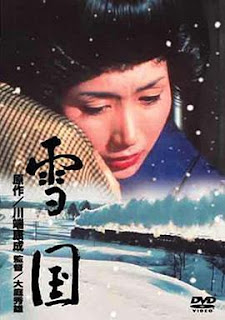52. Kóaⁿ-chiáu cheh lí bô lâi
M̄-koh, khah kīn khòaⁿ he hm̂-á ê ki-kut chho͘-chho͘, hām hūiⁿ-hūiⁿ khòaⁿ soaⁿ-téng he hō͘ lâng kám-siang ê hoe, oân-choân bô kāng-khoán. Kui tōa khún ê chháu-pé kiâng boeh cha̍h kah bô khòaⁿ-e phāiⁿ i ê cha-bó͘-lâng ê hûn-su, kiâⁿ ê sî chhè tio̍h siâ-pho nn̄g-pêng ê chio̍h-piah, koh ū si-si sā-sā ê siaⁿ. He sūi chám-jiân-á cha̍t-chiⁿ.
Túiⁿ kàu pâng-keng, tī keh-piah tiám cha̍p-chek teng-hóe ê àm-hun pâng-keng lih, khòaⁿ tio̍h hit-chiah tōa-kho͘ ia̍h-á pàng-nūi tī o͘-chhat ê saⁿ-á-kè, koh poe cháu. Gîm-chîⁿ ê ia̍h-á mā phi-phi pho̍k-pho̍k tih phah khòaⁿ-súi ê kòa-teng.
Ji̍t-sî tō kui-kang lóng ū thâng ê siaⁿ tih kiò.
Komako khah òaⁿ chiah lâi kàu-ūi.
Yi khiā tī cháu-lông lia̍h i kim-kim siàng.
"Lí lâi chia chhòng sáⁿ? Lí lâi chit-khoán só͘-chāi boeh chhòng sáⁿ?"
"Lâi khòaⁿ lí."
"Che m̄-sī chin-sim ê ōe. Tokyo-lâng ài pe̍h-chha̍t, chìn thó-ià."
Kóng liáu, yi ná chē lo̍h-lâi, siaⁿ-im pàng khah jiû-núi, koh kóng:
"Góa m̄ koh sàng lí lī-khui ah. Hit-chióng sim-chêng m̄-chai án-nóa kóng hó."
"Ah, chit-kái góa tō mài kóng, tiām-tiām túiⁿ."
"M̄-sī lah. Góa sī kóng m̄ sàng lí khì chhia-thâu."
"Hit-ê lâng āu-lâi án-nóa ah?"
"Iáu ū sáⁿ? kiat-kio̍k tō sī sí."
"Sī tī lí lâi sàng góa hit tiong-kan?"
"M̄-koh, he sī lēng-gōa chi̍t-hôe sū. Góa bô siūⁿ tio̍h, sio-sàng ē hiah-nī kan-khó͘."
"Hmh."
"Lí jī-goe̍h cha̍p-sì sī án-nóa ah? Phiàn--lâng. Hāi góa tán chiâⁿ kú. Í-āu lí kóng sáⁿ, góa lóng m̄-káⁿ sìn."
Jī-goe̍h cha̍p-sì sī Kóaⁿ-chiáu Cheh. Che sī Seh-kok gín-á ta̍k-nî kí-hêng ê cheh-ji̍t. Cha̍p-kang chêng, chng lih ê gín-á tō chhēng chháu-ê khì kā seh ta̍h cha̍t, kā chhiat chò nn̄g-chhioh pêng-hong ê seh-pang, kā tha̍h koân, khí chi̍t-keng seh ê lé-tn̂g. Seh ê lé-tn̂g tōa-sè tn̄g-peh sù-hong, koân tn̄g thóng. Cha̍p-sì hit-àm, kā ùi ke-ke hō͘-hō͘ siu-chi̍p ê [kòe-nî kòa tī mûi-chêng ê] tiū-chháu-soh tui tī lé-tn̂g thâu-chêng, kā sio kah hōng-hōng-kiò.
--
52. 趕鳥節你無來
毋過, 較近看彼茅仔 ê 枝骨粗粗, 和 hūiⁿ-hūiⁿ 看山頂 he 予人感 siang ê 花, 完全無仝款. 規大捆 ê 草把 kiâng 欲閘 kah 無看 e 揹伊 ê 查某人 ê 魂軀, 行 ê 時 chhè 著斜坡兩爿 ê 石壁, koh 有 si-si sā-sā ê 聲. 彼穗嶄然仔 cha̍t-chiⁿ.
Túiⁿ 到房間, tī 隔壁點十燭燈火 ê 暗分房間 lih, 看著彼隻大箍蝶仔放 nūi tī 烏漆 ê 衫仔架, koh 飛走. 砛簷 ê 蝶仔 mā phi-phi pho̍k-pho̍k tih 拍看媠 ê 掛燈.
日時 tō 規工攏有蟲 ê 聲 tih 叫.
Komako 較晏才來到位.
她徛 tī 走廊掠伊金金相.
"你來遮創啥? 你來這款所在欲創啥?"
"來看你."
"這毋是真心 ê 話. Tokyo 人愛白賊, 晉討厭."
講了, 她 ná 坐落來, 聲音放較柔 núi, koh 講:
"我毋 koh 送你離開 ah. 彼種心情毋知 án-nóa 講好."
"Ah, 這改我 tō 莫講, 恬恬 túiⁿ."
"毋是 lah. 我是講毋送你去車頭."
"彼个人後來 án-nóa ah?"
"猶有啥? 結局 tō 是死."
"是 tī 你來送我 hit 中間?"
"毋過, 彼是另外一回事. 我無想著, 相送 ē hiah-nī 艱苦."
"Hmh."
"你二月十四是 án-nóa ah? 騙人. 害我等誠久. 以後你講啥, 我攏毋敢信."
二月十四是趕鳥節. 這是雪國囡仔逐年舉行 ê 節日. 十工前, 庄 lih ê 囡仔 tō 穿草鞋去 kā 雪踏 cha̍t, kā 切做兩尺平方 ê 雪枋, kā 疊懸, 起一間雪 ê 禮堂. 雪 ê 禮堂大細丈八四方, 懸丈捅. 十四彼暗, kā ùi 家家戶戶收集 ê [過年掛 tī mûi 前 ê] 稻草索堆 tī 禮堂頭前, kā 燒 kah hōng-hōng 叫.
--
52.
But the great strands he saw here seemed quite different in nature from the grasses that had so moved him. The large bundles hid the women carrying them, and rustled against the rocks that flanked the path. And the plumes were long and powerful.
Under the dim light in the dressing-room, Shimamura could see that the large-bodied moth was laying eggs along the black lacquer of the clothes-frame. Moths were beating at the lantern under the eaves.
There was a steady humming of autumn insects, as there had been from before sundown.
Komako was a little late.
She gazed in at him from the hall.
"Why have you come here? Why have you come to a place like this?"
"I've come to see you."
"You don't mean that. I dislike people from Tokyo because they're always lying." She sat down, and her voice was softer. "I'm never going to see anyone off again. I can't describe how it felt to see you off."
"This time I'll go without telling you."
"No. I mean I won't go to the station again." "What happened to him?"
"He died, of course."
"While you were seeing me off?"
"But that's not the reason. I had no idea I could
hate so to see someone off." Shimamura nodded.
"Where were you on the fourteenth of February? I was waiting for you. But I'll know better than to believe you next time."
The fourteenth of February was the "bird-chasing festival," a children's festival that had in it the spirit of this snow country. For ten days before the festival the children of the village tramped down the snow with straw boots, and presently, cutting the now boardlike snow into two-foot cubes, they built a snow palace some six yards square and more than ten feet high.
--


No comments:
Post a Comment